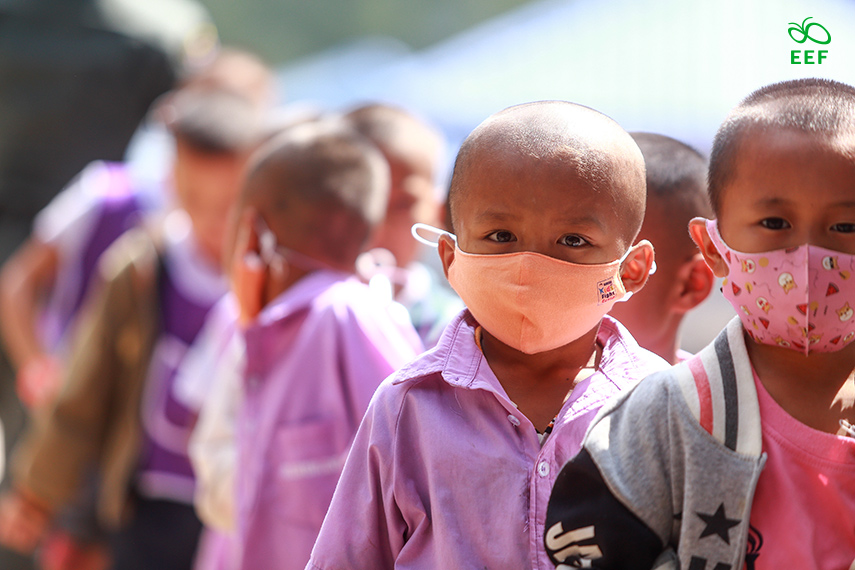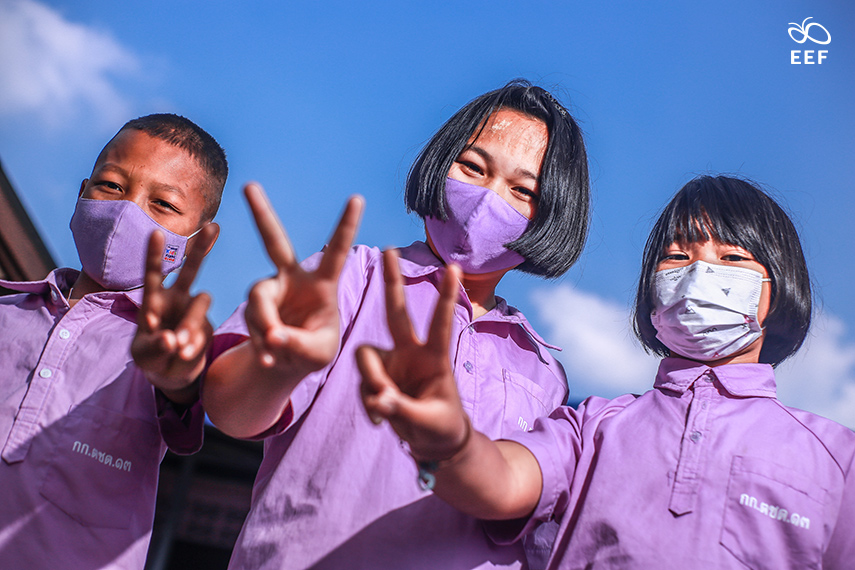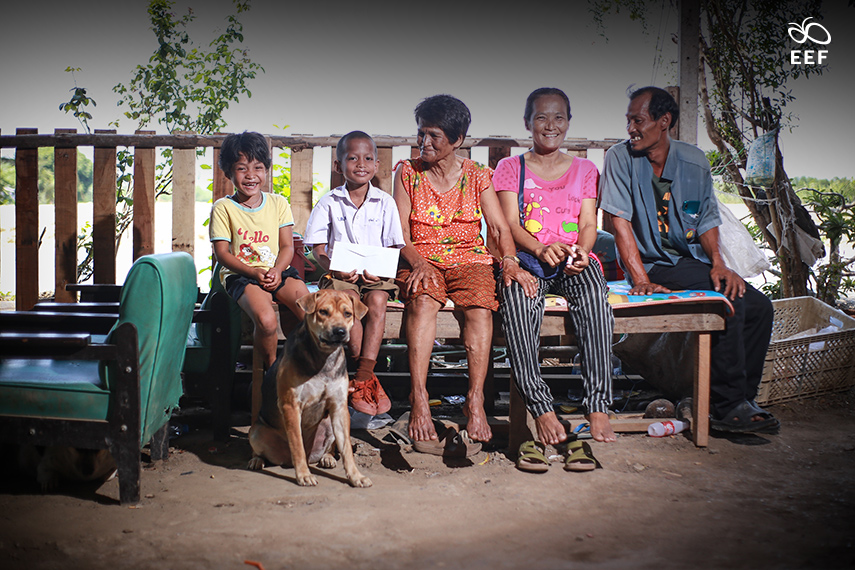
Thailand has faced economic challenges, exacerbated by the COVID-19 pandemic, leading to increased unemployment, decreased incomes, and a rise in poverty. These difficulties have posed significant obstacles to education, causing many students to miss out on opportunities or drop out of school. Despite policies for free schooling, financial constraints prevent numerous children and youth from accessing these benefits, highlighting the urgent need to address this issue and provide every child with a chance to succeed.
To address the financial barriers faced by disadvantaged students, the Education Security Development Program was launched by the Equitable Education Fund (EEF) Thailand. This program aims to establish an education security system that supports financially disadvantaged children and youth in accessing quality education, from kindergarten to Grade 9. By using demand-side financing, the program allocates the budget directly to individual students, overcoming obstacles and increasing school attendance opportunities for low-income families.

The Conditional Cash Transfer (CCT) is the outcome of the Education Security Development Program. In this program, a screening process is employed to identify financially disadvantaged students, with teachers and school committees visiting households to gather individual student status information through a designated application. This information is then screened using the Proxy Means Test (PMT), and eligible students receive financial support on the condition that they maintain an 80-85% attendance rate and meet specific development criteria. Regular follow-up is conducted to prevent students from dropping out of the program.
This equity-based budgeting approach has been successful in many countries, monitoring and preventing dropout rates and providing higher education opportunities for underprivileged students. The Education Security Development Program has made a remarkable impact, reaching 1.3 million children and youth who faced financial constraints or lacked access to quality education in the 2022 fiscal year. This highlights the EEF’s unwavering commitment to providing equal educational opportunities at all levels.
The EEF has implemented various crucial initiatives to ensure equal education opportunities for marginalized children and youth. These include conducting comprehensive surveys to gather enrollment data, identifying potential equity fund students, enhancing access to higher education, and developing an information management system to provide personalized support and assistance to students. With the participation of dedicated teachers from 1,050 schools across 28 educational zones nationwide, spanning Grades 1 to Grade 12, the project has achieved an impressive 95% retention rate for students receiving funds.
In the first semester of the 2023 academic year, the program provided vital assistance to 104,503 students, including 11.49% who were equity fund beneficiaries. These efforts spearheaded by the EEF are driving transformative change towards equitable education, ensuring that no child is left behind.

To further address the impact of the COVID-19 situation, the EEF collaborates with various agencies to develop a data system that identifies and supports students at risk of dropping out. This has led to policy recommendations, such as improving the allocation of basic education funding for disadvantaged students, increasing the mid-day meal budget, providing meals to disadvantaged students, and reducing barriers to internet access for learning purposes.
Looking ahead, the EEF is dedicated to reducing educational inequality in the 2023 academic year. Plans include expanding financial assistance from early childhood to high school, adjusting fund allocation based on education level, and collecting data to formulate effective measures.

The success of the Education Security Development Program. demonstrates the power of collaboration across sectors, including educational organizations, the public and private sectors, and civil society. This initiative has shown that access to learning opportunities can break the cycle of intergenerational poverty, promoting personal and family development. It highlights the transformative power of education in empowering individuals and communities.
Through this collaborative effort, countless underprivileged children and youth have been allowed to realize their full potential and contribute to society. By promoting equal access to education, the program has taken a significant step toward creating a more just and equitable society.
Source: Equitable Education Fund. (2022). Annual Report.
https://www.eef.or.th/wp-content/uploads/2023/04/oiteef2023-O13.pdf

